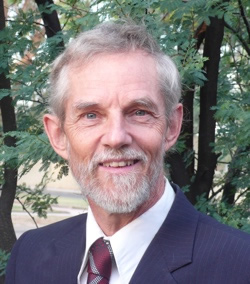Friday, 5pm
Keynote: The Larry Wells Lecture 2017
“The Individual Quest for Meaning in the Humanities”
The Humanities face more challenges today than maybe ever before. Pragmatism and utilitarianism dominate public thinking, and politicians and administrators consistently voice negative views about the university where students are required to study foreign languages and cultures, philosophy, history, religion, art history, etc. Have we already entered a culture war, especially in North America, where the existence of universities as we have known them for two hundred years, might be at stake? Can we, as a western society, afford the new ideas of transforming the university into a trading school, with specific inputs and outputs, controlled by economic interests? Certainly not, as all insiders will insist, often not well armed with convincing arguments. But we are moving out of the defense and toward an energetic self-affirmation. The analysis of literature, for instance, allows us to address fundamental human needs, especially the quest for meaning, and the study of literary documents makes it possible to confront the demands of life itself, such as love, death, God, environment, identity, peace and war, hatred and tolerance.
Saturday, 11am
Workshop: The Meaning of Angelus Silesius
The workshop will introduce a selection of short epigrams by the famous Baroque poet Angelus Silesius who created some of the most moving statements about the meaning of life. His remarks about the rose and it being self-contained could be a reflection of Boethius’s De consolatione philosophiae, and it might have influenced in turn Gertrude Stein’s famous line “A rose is a rose is a rose” (1913). Silesius’s enigmatic but ponderous verses, which seem to be oscillating in their effort to create meaning, can serve well as a basis for the global search of relevance in all existence. Life, love, and death intersect here, and those three components are embraced by the search for God, both in the Middle Ages and in our present time. Silesius is just as relevant today for us as are the poems and plays by Bertolt Brecht or the novels by Christa Wolf.
Keynote Speaker and Workshop Leader: Albrecht Classen, University of Arizona
Albrecht Classen is University Distinguished Professor of German Studies at the University of Arizona, where he teaches and researches the German and Europ ean Middle Ages and Early Modern Age. In his more than 90 scholarly books and more than 600 articles he has explored a wide range of topics, dealing with many of the literary masters of the pre-modern age, women’s literature, mysticism, ecocriticism, history of mentality, everyday life, intertextuality, interculturality, multilingualism, xenology, eroticism, and humanities at large. He is the editor of the Handbook of Medieval Studies (3 vols., 2010) and the Handbook of Medieval Culture (3 vols., 2015), and the editor of the journals Mediaevistik and Humanities Open Access. His current book projects focus on the myth of Charlemagne in medieval German and Dutch literature, on water in medieval literature, on magic and magicians in the pre-modern era, on Japanese and German medieval literature in comparison, and on eros and sexuality in German literature.
ean Middle Ages and Early Modern Age. In his more than 90 scholarly books and more than 600 articles he has explored a wide range of topics, dealing with many of the literary masters of the pre-modern age, women’s literature, mysticism, ecocriticism, history of mentality, everyday life, intertextuality, interculturality, multilingualism, xenology, eroticism, and humanities at large. He is the editor of the Handbook of Medieval Studies (3 vols., 2010) and the Handbook of Medieval Culture (3 vols., 2015), and the editor of the journals Mediaevistik and Humanities Open Access. His current book projects focus on the myth of Charlemagne in medieval German and Dutch literature, on water in medieval literature, on magic and magicians in the pre-modern era, on Japanese and German medieval literature in comparison, and on eros and sexuality in German literature.